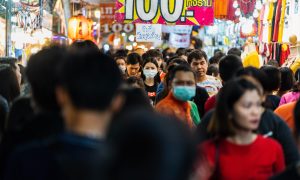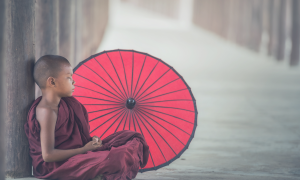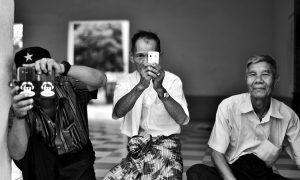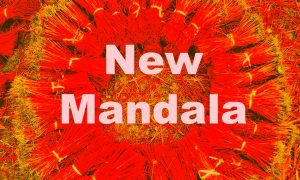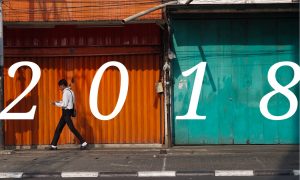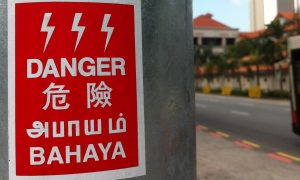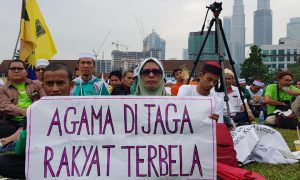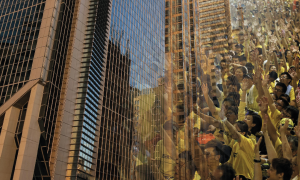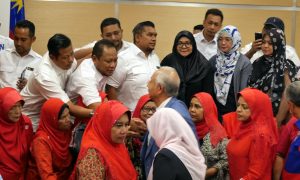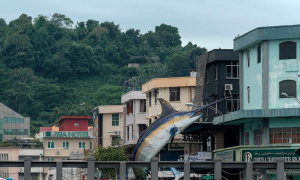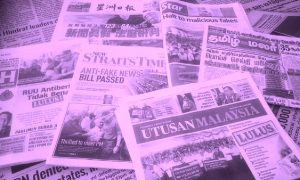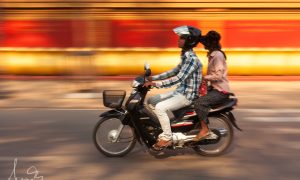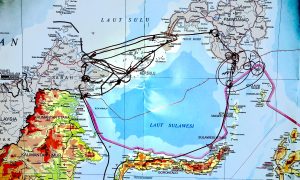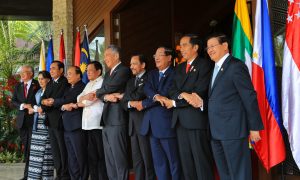Our new series looks at coronavirus in Southeast Asia through diverse lens, and invites authors and readers to reflect and speculate on what we can learn from this crisis and all it brings.
Reflections on the future of Myanmar Studies
Where to now for Myanmar Studies? New Mandala co-founder Nicholas Farrelly reflects on a rapidly changing field.
Nick Cheesman in conversation with Sumit K. Mandal on “Becoming Arab”
A discussion on the power and limits of colonial racial categories; Hadramis, Sayyids and Sharifas in maritime Southeast Asia; modernity and cultural hybridity; the descendants of Arabs in the Malay world today;
Farewell from a founder
Reflections on the ups and downs of New Mandala and the future for online academic engagement.
The medieval tropics
Medieval artefacts and manuscripts are explored by Alex West to give insight on the deep past of Southeast Asia.
An end-of-2018 letter from the editor
A year of growth and experimentation at New Mandala, with an even bigger year ahead.
New Mandala’s most read in 2018
Revisit the 20 most popular articles published at New Mandala this year.
Southeast Asia’s ethnic crises in modernity
Some big-picture reflections on regime type, ethnic diversity, and ethnic exclusion.
Warming to climate change
Can the new climate change ministry navigate the complex politics of competing interests when tackling the threats of extreme weather? Or is an independent commission answerable to Parliament needed to hold the government to account?
Ways of seeing a ‘moderate Muslim nation’
As long as the global attitude towards religious issues doesn't change, and Malaysians themselves mostly stay silent on these issues, the temptation will always be to smother dissent in the ‘invisibility cloak of religion’.
Malay anxiety, exclusion, and national unity
By drawing stricter boundaries between what is ‘Islamic’ and ‘un-Islamic’, and between who is ‘Malay’ and ‘non-Malay’, the anxiety about 'Malay unity' is addressed in a post-May 9 Malaysia.
Wielding the purse strings of Southeast Asian civil society
Illiberalism at home, and pro-market ideologies abroad, are putting pressure on Southeast Asian civil society organisations' financial health.
The struggle for political Islam in ‘new Malaysia’
The GE14 result reflects PAS' enduring influence, yet the PH parties together with IKRAM and ABIM offer a viable ‘Islamic alternative’ for pious Muslim voters.
A regime change glanced askance
The ‘cari makan’ or a rent-seeking political culture may be the hardest thing to reform in Malaysia, even under a reformist government. And human nature will make this almost impossible to do.
Scratching the itch out east with Warisan
Can former minister and prime minister Najb Razak's ‘good friend’ Shafie Apdal sweep out Sabah's incumbents at GE14, and end up delivering power to Mahathir's opposition?
Sabah and its GE14 deliverance from nationalised identity
Sabah needs leaders and statesmen determined to solve its long overdue need for autonomy, without fear of injuring a federal government's pride.
All the news that’s fit to fake
As Malaysia rushes to its GE14 on 9 May, the new anti-fake news law is primed against the state's critics, emboldening speech vigilantism by outsourced censors linked to the ruling UMNO party.
Lee Morgenbesser on ‘Behind the Façade’
The New Books in Southeast Asian Studies podcast explores the idea that elections can be instrumentalised by dictators to reinforce their rule.
Perspectives on the Past at New Mandala
Welcoming the University of Sydney's Southeast Asian history bloggers to New Mandala.
Terrorist arbitrage in Southeast Asia
Jihadists know how to take advantage of the unique space for mobilisation offered by the Indonesia–Malaysia–Philippines triborder area. Governments are still catching up.
The race to save up to 50 shipwrecks from looters in Southeast Asia
How should we respond when heritage is damaged or destroyed?
ASEAN’s myths: creating continuity, rather than change
ASEAN's human rights mechanisms reflect the body's prioritising the interests of national elites. Don't expect it to be of use in resolving the Rohingya crisis.
 Facebook
Facebook  Twitter
Twitter  Soundcloud
Soundcloud  Youtube
Youtube  Rss
Rss 